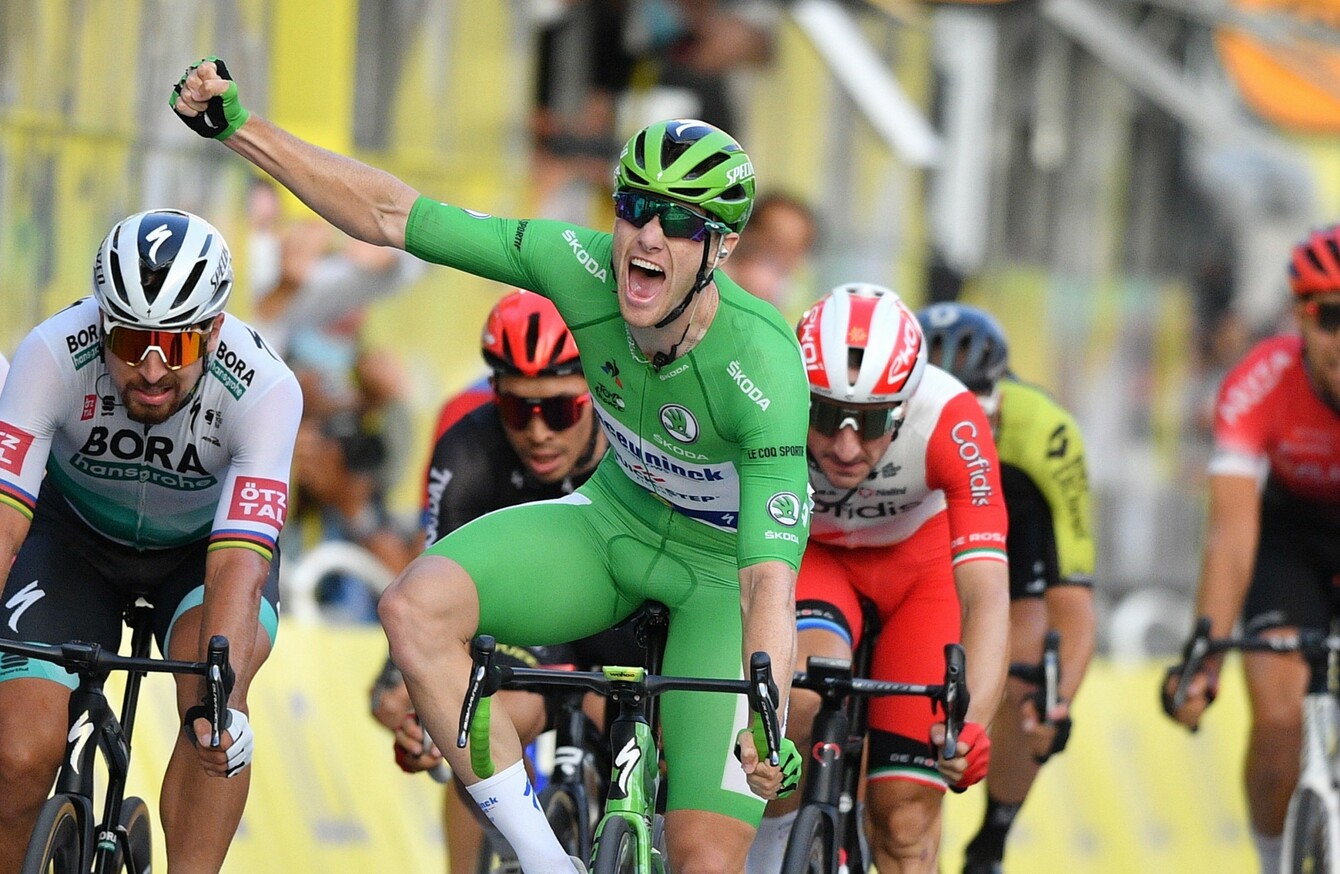Tour De France White Jersey Winners
The Jerseys of the Tour de France By Melanie Clancy As if professional cycling weren't confusing enough on its own, what with its unspoken rules of the peloton and occasionally mystifying strategies, the Tour de France has a number of awards beyond just the overall winner in the general classification. The young rider classification is a secondary competition in the Tour de France, that started in 1975. Excluding the years 1989 to 1999, the leader of the young rider classification wears a white jersey (French: maillot blanc). The requirements to be eligible for the young rider classification have changed over the years but have always been. The year is 1919, and the Tour de France is making its comeback after a four-year, war-induced hiatus. Two-thirds of the way into the 5,560km epic and prior to the 325km 11th stage from Grenoble. The Tour de France offers many of the recently crowned national champions the first opportunity to wear their freshly designed custom jerseys in a race. Related Articles All the gear: Tour de.
Paris (AFP) — The comprehensive list of each jersey classification winner from the 105th edition of the Tour de France.
Yellow jersey — Geraint Thomas (Sky)

Thomas began the Tour expecting to help four-time winner and teammate Chris Froome bid for a record-equalling fifth victory. But his outlook changed when Froome lost precious time and crashed twice before the halfway mark. When an on-form Thomas won back-to-back stages in the Alps, winning on Alpe d’Huez in the yellow jersey, Team Sky were handed a dilemma. But Thomas, a key helper in Froome’s previous four Tour wins, stepped up to the plate when required, countering dangerous attacks and threats from rivals, and sprinting to claim precious bonus seconds to show he was fully deserving of what was a historic win for Wales.
Green jersey — Peter Sagan (Bora-Hansgrohe)
A year after being thrown off the race for causing the crash that ended sprint rival Mark Cavendish’s campaign, five-time winner Sagan returned to the Tour looking to equal Erik Zabel’s record haul of six victories in the points competition. The former three-time world champion did not disappoint, winning three stages in total and — after seeing a slew of rivals like Cavendish, Marcel Kittel and Andre Greipel fail to get past the mountain stages — battling through a tough four days in the Pyrenees, where he crashed, to seal the jersey.
Polka dot jersey — Julian Alaphilippe (Quick Step-Floors)
Alaphilippe started the Tour de France hoping to bag stage wins but, after his impressive victory in the Alps at Le Grand Bornand on stage 10, the Quick Step ‘puncheur’ also found himself in the King of the Mountains jersey for the race’s most consistent climber. Alaphilippe hung on to the prize in the following stages, where he was challenged by compatriot and 2017 champion Warren Barguil (Fortuneo). But Alaphilippe was not to be denied. On stage 16 he capped a daring attack by overtaking Adam Yates, who had crashed, on his way to a second stage win on the downhill finish at Bagneres-de-Luchon. Days later he mathematically secured the polka dot jersey by cresting the Col d’Aspin in the lead on the final big day in the mountains.
White jersey — Pierre Latour (AG2R-La Mondiale)
Latour’s victory in the white jersey competition — which rewards the best-placed under-25 rider — will have French heads spinning as the prize usually gives an indication of who will go on to win the yellow jersey. But this year even Latour would admit he was fortunate to top the classification for the best young rider. Egan Bernal finished far off in second, but the Colombian sensation was effectively prevented from competing for the white jersey due to his duties in helping Team Sky’s Geraint Thomas win the yellow jersey.
The polka dot jersey is the special cycling jersey given to the 'King of the Mountains' in the Tour de France. The jersey is white with red spots, called polka dots. There is also space for the logo of the cycling team the winner belongs to.
The King of the Mountains is the rider who has collected the most points in the hill-climbing sections of each stage. Points are given to the first riders to reach the top. More points are given for difficult climbs. Difficulty is judged by the length of the climb and the average steepness of the climb.
The King of the Mountains competition at the Tour de France was started in 1933. The polka dot jersey for the winner was introduced in 1975.[1]
Richard Virenque has won the jersey seven times, more than any other cyclist. In 2014 the winner was Rafał Majka. In 2015 an Eritrean rider, Daniel Teklehaimanot, became the first African who won a Polka dot jersey.
References[change change source]
- ↑Bill Mallon; Jeroen Heijmans (2011). Historical Dictionary of Cycling. Scarecrow Press. ISBN0810873699. Retrieved August 11, 2014.
Tour De France White Jersey Winners Results

1933Trueba 1934Vietto 1935Vervaecke 1936Berrendero 1937Vervaecke 1938Bartali 1939Maes 1947Brambilla 1948Bartali 1949Coppi 1950Bobet 1951Géminiani 1952Coppi 1953Lorono 1954Bahamontes 1955Gaul 1956Gaul 1957Nencini 1958Bahamontes 1959Bahamontes 1960Massignan 1961Massignan 1962Bahamontes 1963Bahamontes 1964Bahamontes 1965Jimenez 1966Jimenez 1967Jimenez 1968Gonzalez 1969Merckx 1970Merckx 1971Van Impe 1972Van Impe 1973Torres 1974Perurena 1975Van Impe 1976Bellini 1977Van Impe 1978Martinez 1979Battaglin 1980Martin 1981Van Impe 1982Vallet 1983Van Impe 1984Millar 1985Herrera 1986Hinault 1987Herrera 1988Rooks 1989Theunisse 1990Claveyrolat 1991Chiappucci 1992Chiappucci 1993Rominger 1994Virenque 1995Virenque 1996Virenque 1997Virenque 1998Rinero 1999Virenque 2000Botero 2001Jalabert 2002Jalabert 2003Virenque 2004Virenque 2005Rasmussen 2006Rasmussen 2007Soler 2008Kohl, disqualified 2009Pelizotti, disqualified 2010Charteau 2011Sánchez 2012Voeckler 2013 Quintana 2014Majka |